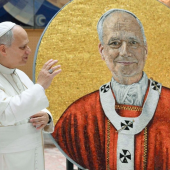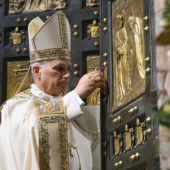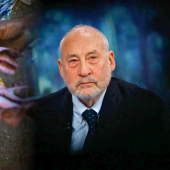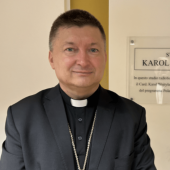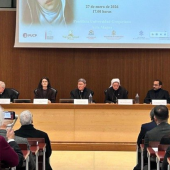Vatican clarifies Pope Francis’ remarks on civil union of gay people
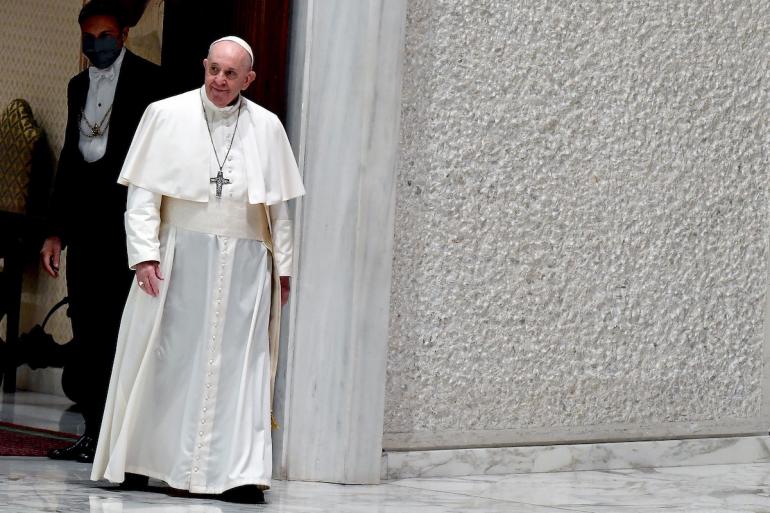
The Vatican has clarified recent comments made by Pope Francis, which he said for a documentary film, on the issue of civil union to cover gay people.
A social media post by Archbishop Franco Coppolo, apostolic nuncio to Mexico, said the Vatican’s Secretary of State has asked papal representatives to share the clarifications.
“Some helpful points are offered, with the desire to present an adequate understanding of the Holy Father’s words,” read Archbishop Coppolo’s post on Facebook on Oct. 30.
He said the Vatican clarification explained that the pope’s comments do not pertain to Catholic doctrine regarding the nature of marriage as a union between one man and one woman but to provisions of civil law.
Archbishop Coppolo said in a media interview that what he posted on his social media account was provided by the Vatican’s Secretariat of State to apostolic nunciatures.
The post noted that in an earlier interview with Pope Francis, the pontiff answered two different questions at two different times that, in the documentary “Francesco.” were edited and published as a single answer “without proper contextualization, which has led to confusion.”
“The Holy Father had first made a pastoral reference about the need for a son or daughter with homosexual guidance to never be discriminated against within the family,” read Archbishop Coppolo’s post.
“They refer to the words: ‘Gay people have the right to be in family; they are children of God, they are entitled to a family. You can’t kick anyone out of family or make life impossible for that reason,'” it added.
The post was followed by a paragraph citing the encyclical “Amoris Laetitia” that read: “With sinodal parents, I have taken into consideration the situation of families living the experience of having in their sinus to people with gay tendencies, an experience nothing easy for parents or their children.
“Therefore, we wish first and foremost to reiterate that everyone, regardless of their sexual tendency, should be respected in their dignity and received with respect, seeking to avoid ‘any sign of unjust discrimination,’ and particularly any form of aggression and violence.
“As far as families are concerned, it is for their part to ensure respectful accompaniment, so that those who manifest a gay trend can count on the help they need to fully understand and realize the will of God in their life,” read the statement.
It then added that a successive question from the interview in the documentary was “inherent in a local law ten years ago in Argentina” about “equal same-sex couples marriages”′ and to the opposition of the then archbishop of Buenos Aires about it.
“Pope Francis has affirmed that ‘it is incongruous to talk about gay marriage,’ adding that, in that same context, he had discussed the right of these people to have some legal coverage: ‘What we need to do is a law civil coexistence; they have the right to be legally covered. I defended that.'”
“The Holy Father had expressed himself like this during a 2014 interview: ‘Marriage is between a man and a woman. Secular states want to justify civil unions to regulate various situations of coexistence, driven by the demand to regulate economic aspects among people, such as ensuring healthcare.
“These are coexistence covenants of different nature, of which I would not know how to give a cast of different forms. It is necessary to see the various cases and evaluate them in their variety,'” the pope was quoted as saying.
“Therefore it is clear that Pope Francis has referred to certain state provisions, not certainly the doctrine of the Church, many times reaffirmed over the years,” read the post of Archbishop Coppolo. - LiCAS.news
Radio Veritas Asia (RVA), a media platform of the Catholic Church, aims to share Christ. RVA started in 1969 as a continental Catholic radio station to serve Asian countries in their respective local language, thus earning the tag “the Voice of Asian Christianity.” Responding to the emerging context, RVA embraced media platforms to connect with the global Asian audience via its 21 language websites and various social media platforms.









